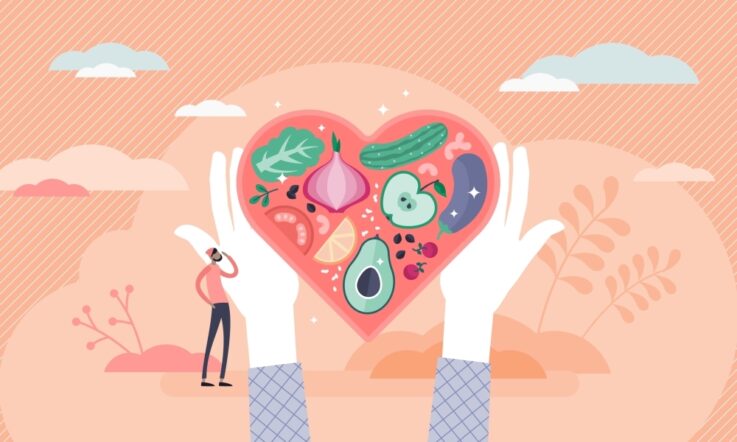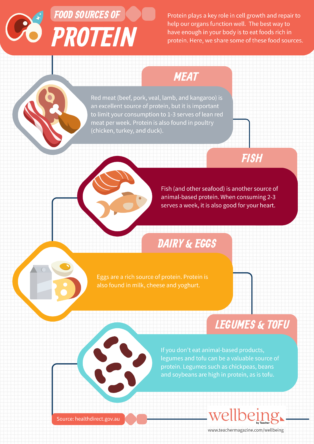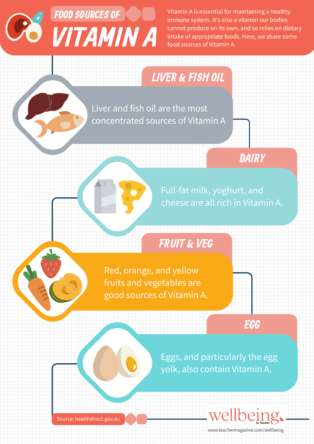Recent research shows that the prevalence of vitamin D deficiency among some groups in the Australian population is higher than previously thought. Dr Eleanor Dunlop joins us to share more about the role of vitamin D in our diet.
Dr Eleanor (Ellie) Dunlop is an Accredited Practising Dietitian and postdoctoral researcher at Curtin University in Western Australia. She tells Wellbeing by Teacher that until recently, relatively little was known about dietary intake of vitamin D in Australia.
‘We knew that one in 4 Australian adults were vitamin D deficient, and our research showed that the prevalence of vitamin D deficiency was even higher in certain population groups – 32% of young adults aged 18-24 years and 39% of Aboriginal and Torres Strait Islander adults living in remote areas,’ she says.
The research of Dr Dunlop and her colleagues involved an analysis of the food consumption of over 12,000 Australians aged 2 years and older, using data from the latest Australian Health Survey. They then analysed these data against a database they produced which shows the vitamin D content of various foods. From this analysis, they were able to conclude that, as a population, Australians are likely to have vitamin D intakes that are less than half of international recommendations.
‘For the first time, we were able to make nationally representative estimates of usual intakes of vitamin D in Australia based on comprehensive food composition data,’ Dr Dunlop shares. ‘We also developed new dose-response data to show how adding vitamin D to food affects vitamin D status. We are now using the food composition database, the intakes estimates and dose-response data to model the addition of certain concentrations of vitamin D to different foods to find a safe and effective strategy to improve vitamin D status across the Australian population.’
The role of vitamin D in our bodies
Vitamin D is vital for bone health and it also functions to maintain the crucial balance of calcium homeostasis (in other words, ensuring there is adequate calcium concentration in the body). It is also important for muscle function.
‘Severe vitamin D deficiency manifests as osteomalacia in adults and rickets in children, meaning that bones become softer and weaker,’ Dr Dunlop explains. ‘Less severe vitamin D deficiency can mean a greater risk of osteoporosis, making bones more prone to breaking easily. Together with its role in muscle function, this means that vitamin D is important in maintaining good mobility, especially in older age.’
Boosting your vitamin D intake
So, what can individuals do to ensure they have enough vitamin D?
‘Our 2 options for improving vitamin D status are to increase sun exposure so that our bodies make more vitamin D, or to consume more,’ Dr Dunlop says. ‘Due to the increased risk of skin cancer that’s associated with sun exposure, we wanted to explore dietary strategies to improve vitamin D status in the Australian population.’
Food sources rich in vitamin D
‘The richest source of vitamin D is oily fish, like salmon, mackerel, sardines and trout. Eggs are also a nice source of vitamin D. Some meats also contain vitamin D, as well as a small number of fortified foods,’ Dr Dunlop shares.
To increase your vitamin D intake through your diet, she recommends including eggs in your diet, and around 2 serves of oily fish per week in your diet, as per the Australian Dietary Guidelines. ‘For people who avoid animal products, some dairy product alternatives, such as fluid milk alternatives, and some breakfast cereals, are fortified with vitamin D; however, it’s important to check the label as only a small number of products are fortified with vitamin D,’ she says.
Are you an educator working in a school setting? If so, are you interested in submitting an article for publication on Wellbeing by Teacher? We’d love to hear about how you care for your own wellbeing. Reach out to the team by emailing teacherwellbeing@acer.org with your story idea. We’ve also put together a handy guide to help you get started.





